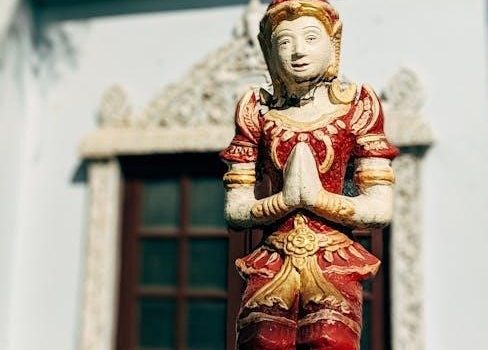dictionary of ancient deities pdf
Category : PDF
The Dictionary of Ancient Deities is a comprehensive resource exploring divine beings from various cultures and time periods, offering insights into their roles and significance. Available in PDF, it provides accessible knowledge for scholars and enthusiasts, bridging ancient myths with modern understanding.
1.1 Overview of the Dictionary’s Purpose and Scope
The Dictionary of Ancient Deities serves as a vast, authoritative guide to divine beings from global mythologies. Spanning over 10,000 entries, it covers gods, goddesses, spirits, and mythical beings across civilizations, including Greek, Roman, Egyptian, Mesopotamian, Asian, and Pacific cultures. Available in PDF, it offers detailed insights into their roles, myths, and cultural significance, making it an indispensable resource for scholars and enthusiasts alike. Its scope ensures a broad understanding of ancient religious and mythological traditions.
1.2 Importance of Studying Ancient Deities
Studying ancient deities provides profound insights into the cultural, religious, and historical contexts of civilizations. It reveals how societies explained natural phenomena, moral values, and existential questions through mythologies. Analyzing these divine beings enhances understanding of art, literature, and modern societal structures. The Dictionary of Ancient Deities facilitates this exploration by compiling extensive knowledge in one accessible resource, making it invaluable for both academic research and personal enrichment.
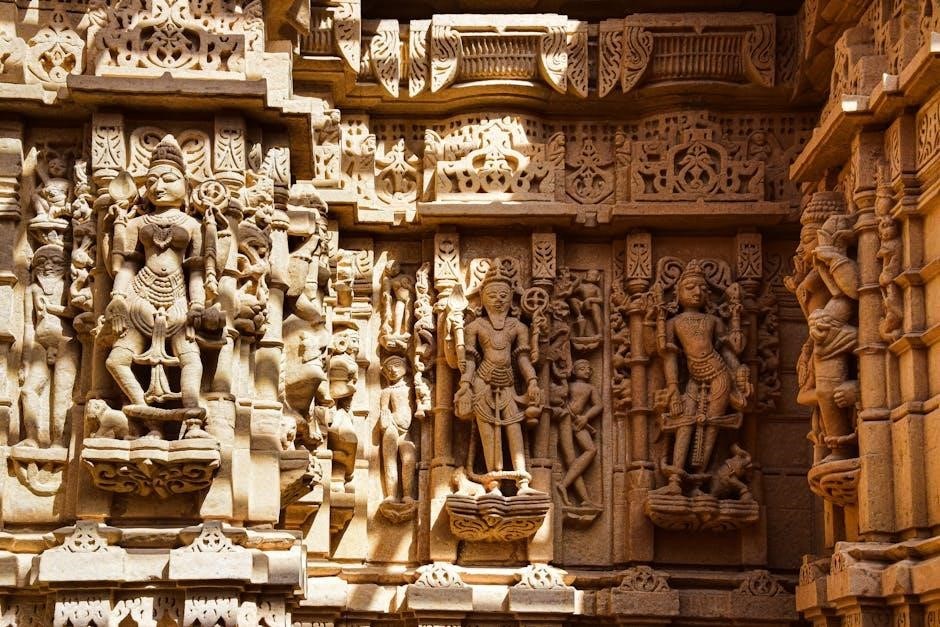
Major Civilizations and Their Deities
The Dictionary of Ancient Deities explores deities from major civilizations, each with unique mythologies, offering a diverse understanding of ancient cultures, now accessible in a convenient PDF format.
2.1 Greek and Roman Pantheon
The Greek and Roman pantheon, led by Zeus and Jupiter respectively, encompasses a vast array of deities like Athena, Apollo, and Diana, each with distinct roles and myths. The Dictionary of Ancient Deities meticulously details their origins, worshipped realms, and cultural impact, while the PDF format ensures easy access to this wealth of information, making ancient mythology accessible for modern scholars and enthusiasts alike.
2.2 Egyptian and Mesopotamian Deities
Egyptian and Mesopotamian cultures revered extensive pantheons of deities, each embodying natural forces and societal values. Egyptian gods like Ra and Isis, and Mesopotamian figures such as Anu and Inanna, were central to religious and cultural practices. The Dictionary of Ancient Deities provides detailed entries on these figures, offering insights into their myths, roles, and historical significance. The PDF version ensures easy access to this rich repository of ancient Near Eastern religious heritage.
2.3 Asian and Pacific Cultures: Hindu, Chinese, and Shinto Deities
Asian and Pacific cultures boast a diverse array of deities, each deeply rooted in their respective traditions. Hindu gods like Shiva and Vishnu, Chinese deities such as Yu Huang and Guan Yin, and Shinto spirits like Amaterasu, are meticulously documented in the Dictionary of Ancient Deities. The PDF format allows easy exploration of these intricate mythologies, offering a wealth of knowledge on their roles, rituals, and cultural influences.
Structure and Content of the Dictionary
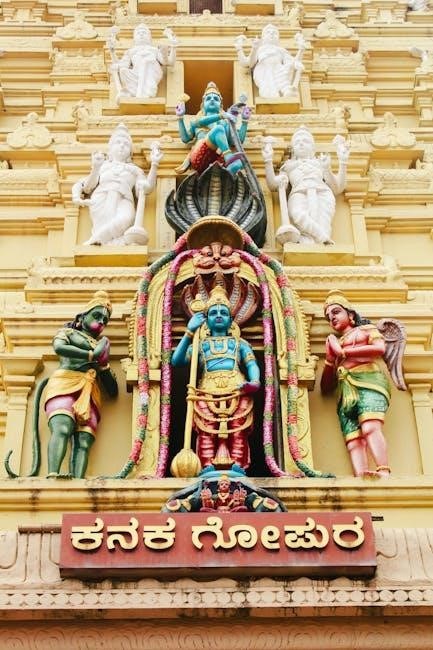
The Dictionary of Ancient Deities is organized alphabetically, ensuring easy access to over 10,000 entries. It includes gods, goddesses, spirits, and mythical beings, providing a detailed exploration of their roles and significance across various cultures and time periods.
3;1 Alphabetical Organization of Entries
The Dictionary of Ancient Deities features an alphabetical arrangement, making it simple to locate specific deities. Each entry is cross-referenced, ensuring seamless navigation between related gods, goddesses, and mythical figures. This structure allows users to explore diverse pantheons efficiently, from Greek and Roman to Egyptian and Asian deities, all within a single, well-organized resource available in PDF format for easy access.
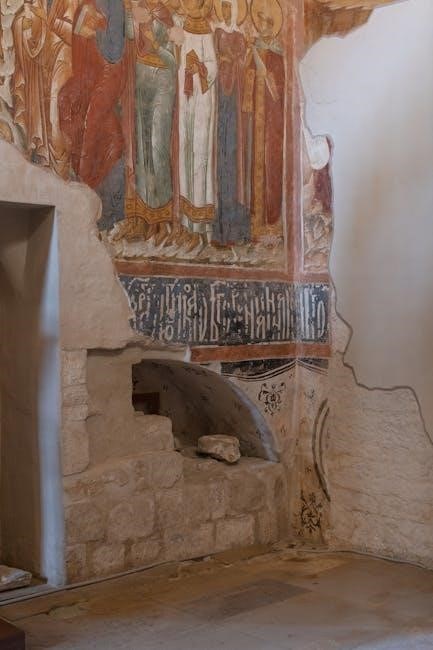
3.2 Types of Entries: Gods, Goddesses, Spirits, and Mythical Beings
The Dictionary of Ancient Deities encompasses a wide variety of entries, including gods, goddesses, spirits, and mythical beings. Each entry provides detailed descriptions, cultural context, and historical significance, ensuring a thorough understanding of these figures. From major deities like Zeus and Isis to lesser-known spirits and mythical creatures, the dictionary offers a diverse and comprehensive overview, making it an invaluable resource for both scholars and enthusiasts, available conveniently in PDF format.
Key Features of the Dictionary
The Dictionary of Ancient Deities features over 10,000 entries, covering gods, goddesses, spirits, and mythical beings. Its comprehensive coverage and detailed descriptions make it a valuable resource, with PDF accessibility enhancing its convenience for researchers and enthusiasts alike.
4.1 Comprehensive Coverage: Over 10,000 Entries
The Dictionary of Ancient Deities boasts an extensive catalog of over 10,000 entries, encompassing gods, goddesses, spirits, and mythical beings from diverse cultures and time periods. This vast repository includes detailed descriptions, historical context, and cross-references, making it an unparalleled resource for scholars and enthusiasts. Its PDF format ensures easy access, allowing users to explore the rich tapestry of ancient mythologies with convenience and depth.
4.2 Historical and Cultural Context
The Dictionary of Ancient Deities provides rich historical and cultural insights, tracing the origins and evolution of divine beings across civilizations. Each entry details the role of deities in shaping societies, rituals, and beliefs, offering a deeper understanding of their cultural significance. The PDF format ensures accessibility, making it an invaluable tool for exploring the diverse tapestry of ancient mythologies and their enduring impact on human history.
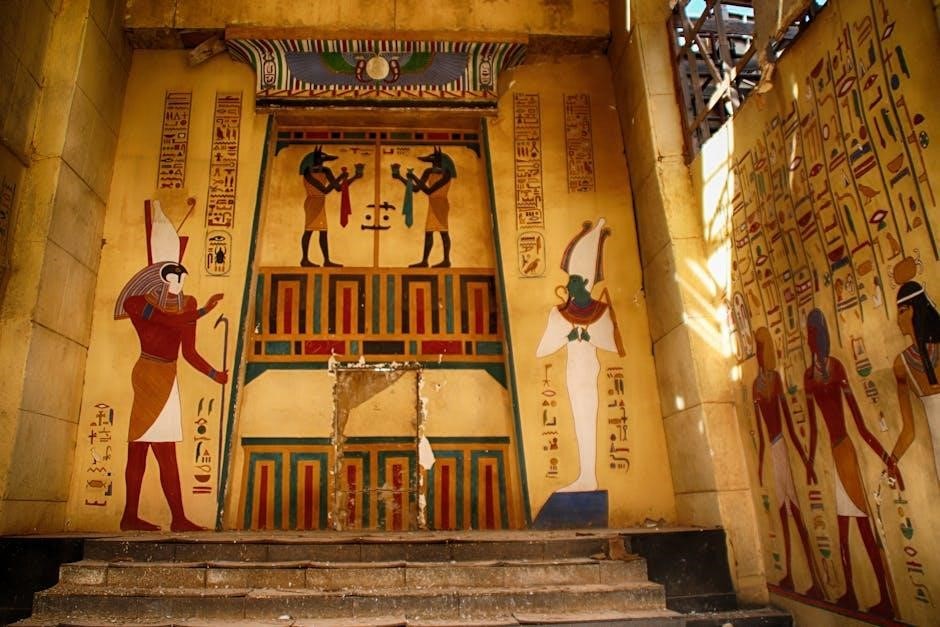
Digital Accessibility and PDF Format
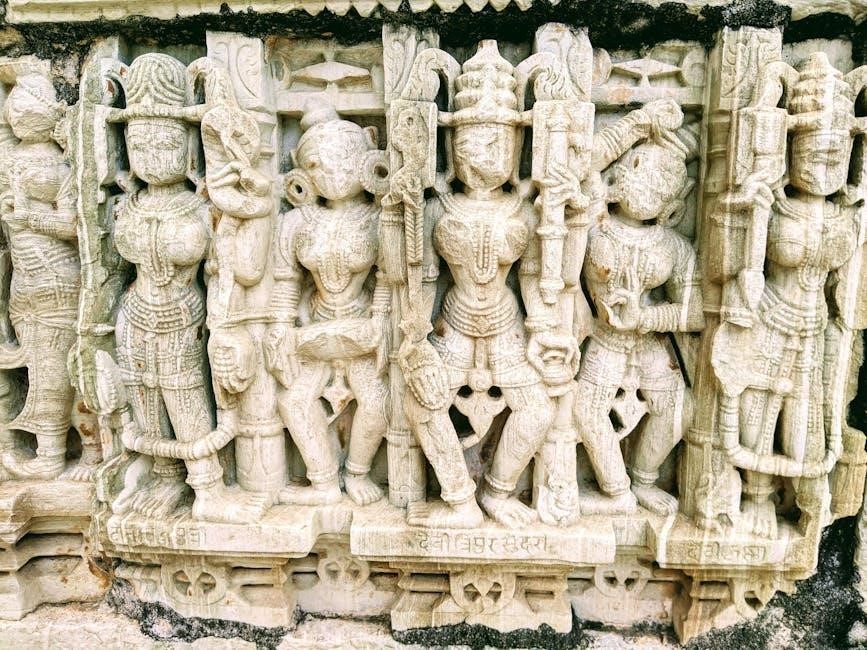
The Dictionary of Ancient Deities is readily available in PDF format, ensuring easy access for researchers and enthusiasts. Its digital form enhances portability and convenience for modern users.
5.1 Availability of the Dictionary in PDF
The Dictionary of Ancient Deities is widely available in PDF format, accessible through various online platforms and academic resources. Users can download it from websites like Books & Bibles or Internet Archive, ensuring easy access for research and personal use. The digital version includes over 10,000 entries, covering gods, goddesses, spirits, and mythical beings, along with historical context and cultural insights. This format allows for convenient storage and navigation on digital devices.
5.2 Benefits of the Digital Version
The digital version of the Dictionary of Ancient Deities offers unparalleled convenience and accessibility. It is fully searchable, allowing users to quickly locate specific deities and cross-references. The PDF format ensures compatibility across devices, making it ideal for research on the go. Additionally, the digital version saves physical storage space and reduces environmental impact, while also enabling easy updates and additions. This format is particularly beneficial for scholars and enthusiasts seeking efficient access to comprehensive mythological knowledge.
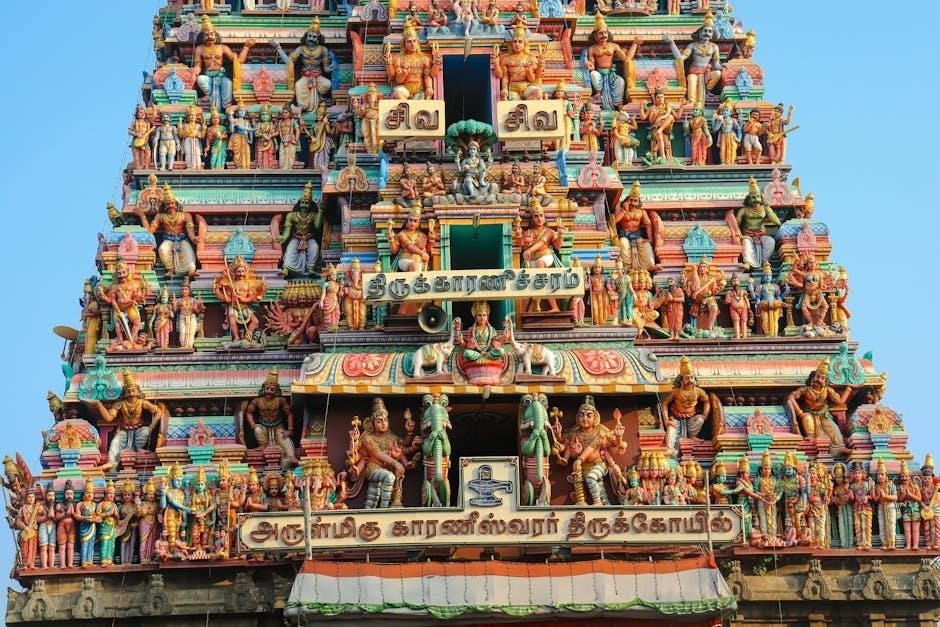
Scholarly Significance and Usage
The Dictionary of Ancient Deities is a vital scholarly resource, offering extensive insights into mythologies. It aids researchers and students in understanding cultural and historical contexts effectively, making it indispensable for academic and mythological studies.
6.1 Use in Academic and Research Settings
The Dictionary of Ancient Deities is an indispensable tool in academic and research environments, providing scholars with a vast repository of information on ancient religions and mythologies. Its comprehensive coverage of over 10,000 entries, including gods, goddesses, and mythical beings, makes it a go-to resource for historians, anthropologists, and theologians. The PDF format enhances accessibility, allowing researchers to easily reference and cross-examine entries, facilitating deeper insights into cultural and historical contexts.
6.2 Value for Students and Enthusiasts of Mythology
The Dictionary of Ancient Deities is a treasure trove for both students and enthusiasts of mythology, offering a wealth of information on ancient deities across various cultures. Its accessible format, including a PDF version, allows learners to explore myths and legends easily. The dictionary’s detailed entries, cross-references, and historical context provide a deeper understanding of mythological figures, making it an essential resource for anyone captivated by the stories and symbolism of ancient worlds.
User Guide and Navigation Tips
The dictionary includes a user guide with tips for navigating its extensive entries, ensuring easy access to deities and related myths through search and cross-references.
7.1 How to Search for Specific Deities
To locate specific deities in the Dictionary of Ancient Deities PDF, use the search function to type the deity’s name or alternate spellings. Cross-references and an alphabetical index aid navigation, ensuring quick access to entries. Users can also filter by culture or category, such as “Greek gods” or “Hindu deities,” to narrow down results efficiently. This feature enhances research and exploration of ancient myths and legends.
7.2 Understanding Cross-References and Related Entries
The Dictionary of Ancient Deities PDF includes cross-references to guide users through related entries, enhancing exploration of interconnected myths. These links highlight relationships between deities, festivals, and cultural practices, providing a holistic understanding. By following cross-references, readers can trace the evolution of myths across civilizations, uncovering shared themes and influences that enrich their study of ancient religious and cultural heritage.
The Dictionary of Ancient Deities PDF is a vital resource for exploring ancient myths, offering unparalleled depth and accessibility. It bridges the past and present, preserving timeless knowledge for future generations.
8.1 The Dictionary as a Modern Resource for Ancient Knowledge
The Dictionary of Ancient Deities PDF serves as a bridge between ancient myths and modern scholarship. By digitizing over 10,000 entries, it offers unparalleled accessibility, enabling researchers and enthusiasts to explore gods, goddesses, and mythical beings across civilizations. This digital format ensures that ancient knowledge remains relevant, fostering a deeper understanding of cultural and historical contexts in today’s world.
